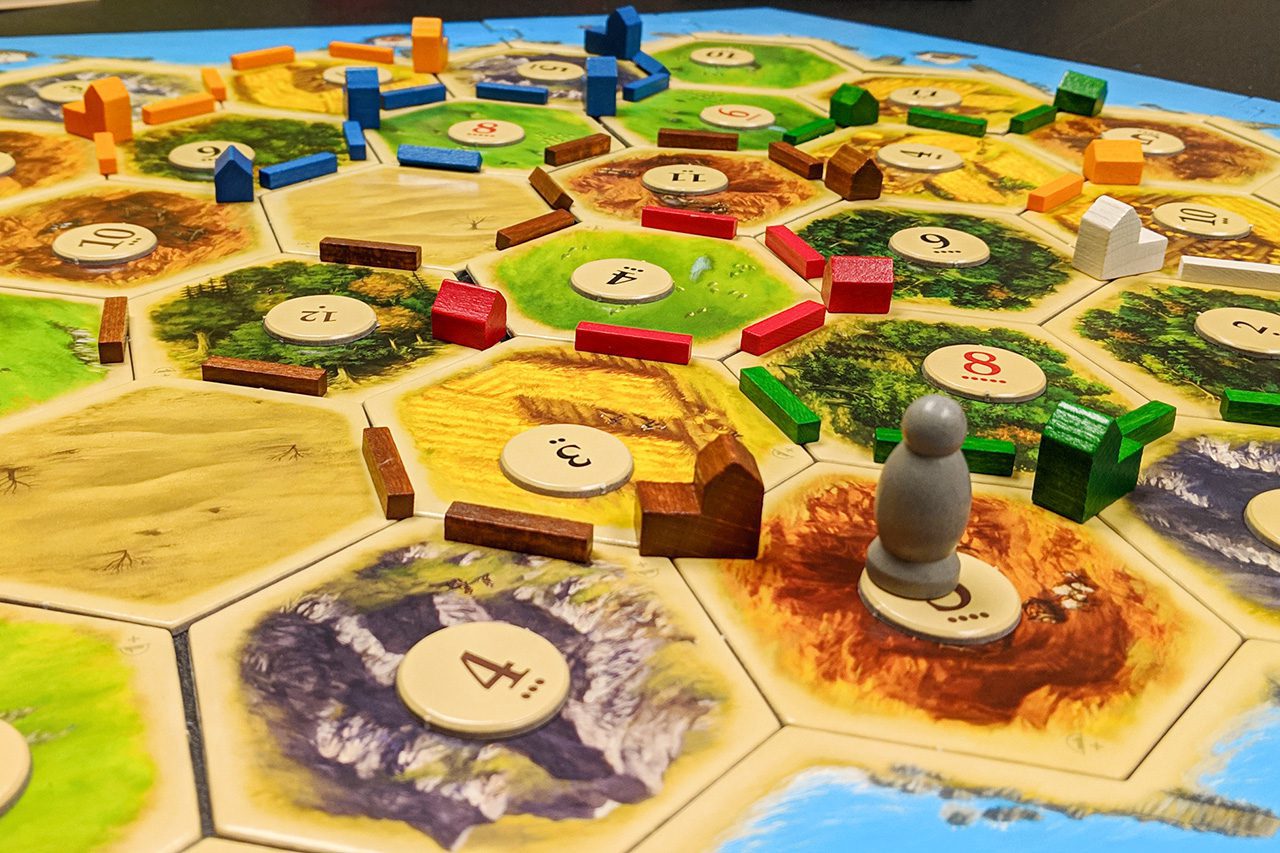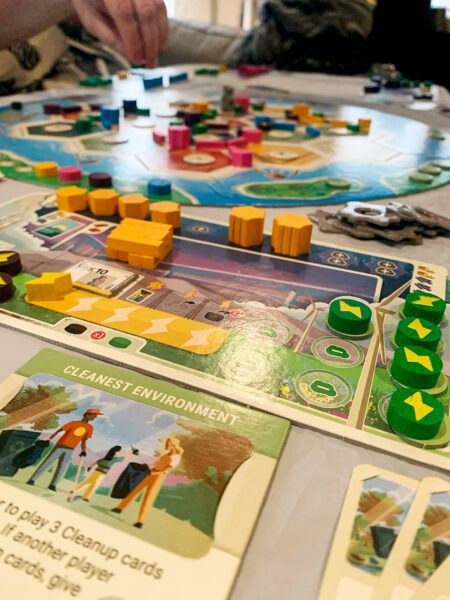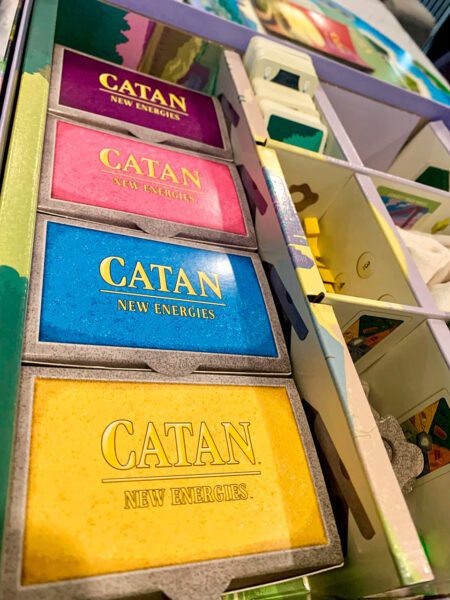It’s Time to Get Serious About Impact Management

The makers of the Settlers of Catan usher players into the 21st century with a new game; Photo by Elle Joblin
New rules challenge players to balance economic growth and environmental responsibility.
I’ve been playing Settlers of Catan for nearly 20 years, both with friends and online with strangers. Millions worldwide enjoy this game for its unique blend of skill and luck, including how it elegantly models many aspects of real-world economics — resource scarcity, trading, competition, and development.
I even wrote my senior thesis in economics on Catan, exploring how trade restrictions in the game impacted economic outcomes. Surprisingly, I found that restricted trade scenarios often outperformed free trade scenarios in terms of resource production and game competitiveness, indicating competitive self-interest tends to minimize mutually beneficial cooperation (i.e., win-win deals).
Catan – New Energies: How To Play Video

Photo by Elle Joblin
Recently, the makers of Catan introduced a new edition called “New Energies” that is designed to encourage players to think about modern sustainability challenges. Players must decide whether to invest in renewable energy or cheaper fossil fuels as they expand their island empires, forcing them to balance economic growth against environmental damage.
While I was intrigued by this concept, I initially questioned the game’s premise, particularly the idea that fossil fuels are “cheaper.” The latest International Renewable Energy Agency (IRENA) data clearly shows renewables, especially solar and wind, are increasingly becoming more cost-effective globally.
Still, board games are supposed to educate through play, so I kept an open mind. Could Catan – New Energies genuinely teach players about the urgency of shifting toward sustainable energy?
Like classic Catan, New Energies involves settlers competing for resources — lumber, brick, food, steel — to build roads, settlements, and cities, earning Victory Points (VPs) along the way. However, there’s now a significant twist. Cities generate “science cards,” which players can use to build energy plants — one card for fossil fuels, three for renewables. These plants affect each player’s “Local Footprint” (LF), an indicator of environmental impact. Players also collectively track a global footprint, representing total pollution within the Catan world. Excessive fossil fuel use raises this footprint, triggering harmful climate events.
These events — air pollution, flooding, and other environmental disasters — add unpredictability and consequences to the game, disproportionately impacting players with higher environmental footprints. Thus, players continuously face strategic decisions: When to transition to renewable energy? How to balance growth and sustainability? How to remain competitive as other players tighten their control over certain resources, or a section of the board?

Photo by Elle Joblin
Catan – New Energies effectively underscores a fundamental lesson: economic development is challenging, but sustainable development is even more complex.
The game explicitly acknowledges today’s urgent energy dilemma in both the rules and during gameplay. Fossil fuels are deeply damaging to the environment, yet renewable energy infrastructure also has environmental costs due to resource extraction for materials. Achieving sustainability thus requires a combination of technology (like carbon capture), nature-based solutions (reforestation), and reduced energy use.
However, the game missteps by making renewable energy plants significantly more expensive than fossil fuels — reflecting outdated economic assumptions. Today, renewables frequently cost less than fossil fuels, even without factoring in the long-term environmental and health benefits of transitioning to renewables. This misleading set up risks reinforcing harmful stereotypes that sustainability inevitably hinders growth.
Realistically, the game’s framing more closely resembles emerging economies still grappling with the early stages of the energy transition, such as Sub-Saharan Africa or parts of Asia. Wealthy nations have largely moved beyond the outdated Catan economy model by adopting and rapidly scaling renewable technologies. For most developed countries, the economics of new power generation clearly favor clean energy, even when taking into account issues with energy storage and intermittent power.

Photo by Elle Joblin
Despite some flaws, Catan – New Energies provides a valuable educational tool. Unlike classic board games like Risk or Monopoly that are more luck-oriented, players in Catan must actively choose their economic paths, highlighting that sustainability decisions have direct and profound consequences.
Player A might aggressively pursue economic growth through fossil fuels, risking severe environmental consequences. Player B, choosing sustainability, may lag economically initially but avoid environmental penalties. Player C might try to balance growth and sustainability strategically.
Most real-world nations currently align more with Player A, prioritizing growth at significant environmental cost. Yet New Energies vividly demonstrates alternative pathways and potential outcomes.
Today’s global leaders regularly convene to discuss how to address climate change, although rarely do they come up with adequate responses. Perhaps a few rounds of Catan – New Energies could provide fresh perspectives and clearer lessons on balancing economic prosperity with environmental responsibility.
Related Content
Comments
Deep Dives
RECENT
Editor's Picks
Webinars

Featuring
Elizabeth Boggs Davidsen
CEO of GSG Impact
May 8 - 12:00 PM EST
News & Events
Subscribe to our newsletter to receive updates about new Magazine content and upcoming webinars, deep dives, and events.
Become a Premium Member to access the full library of webinars and deep dives, exclusive membership portal, member directory, message board, and curated live chats.
At Impact Entrepreneur, we champion fearless, independent journalism and education, spotlighting the inspiring changemakers building the Impact Economy. Diversity, equity, sustainability, and democracy face unprecedented threats from misinformation, powerful interests, and systemic inequities.
We believe a sustainable and equitable future is possible—but we can't achieve it without your help. Our independent voice depends entirely on support from changemakers like you.
Please step up today. Your donation—no matter the size—ensures we continue delivering impactful journalism and education that push boundaries and hold power accountable.
Join us in protecting what truly matters. It only takes a minute to make a real difference.
0 Comments